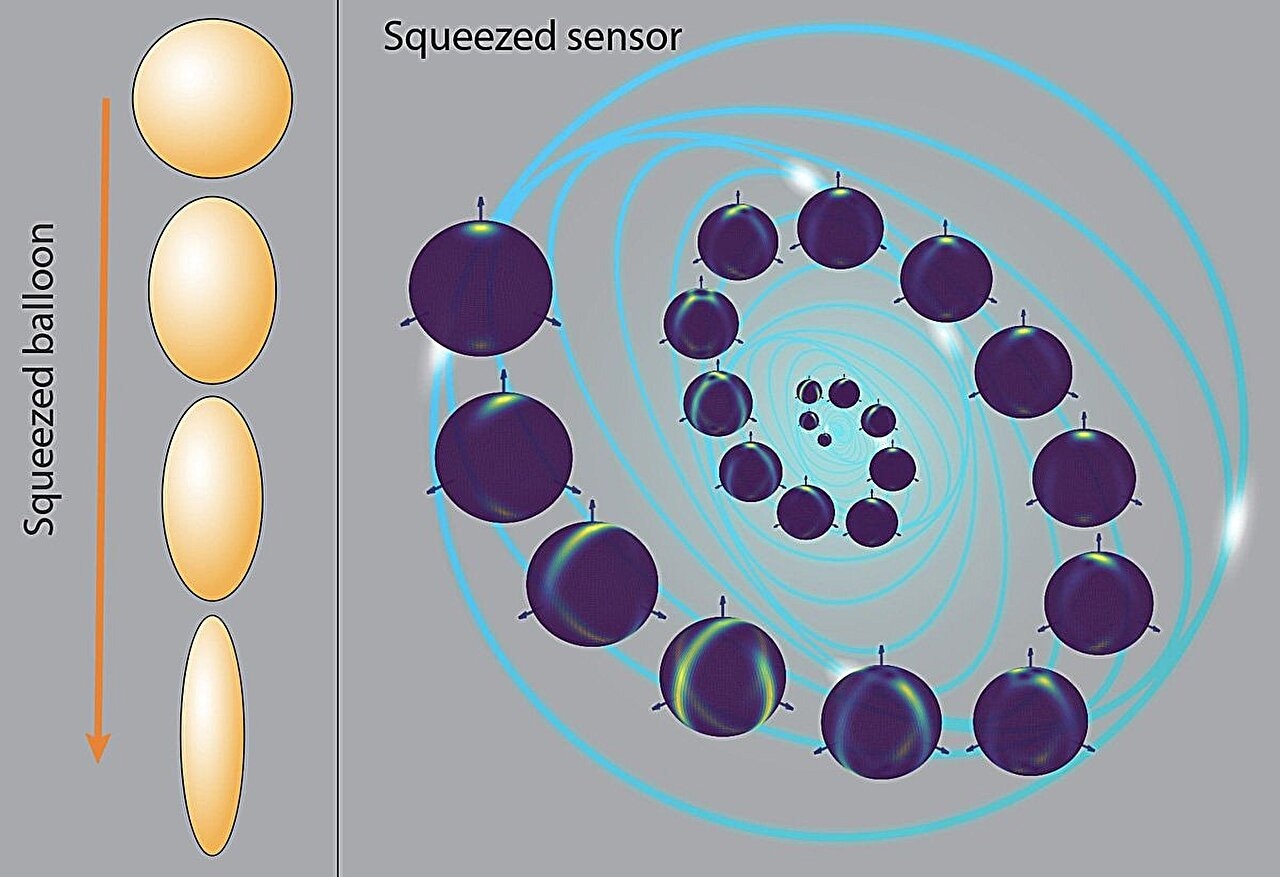Reviewed by Danielle Ellis, B.Sc.Sep 30 2024
In a recent study published in the journal Physical Review Research, scientists from Tohoku University investigated the efficacy of the squeezing method in augmenting the accuracy of measurements in quantum systems including numerous components. The research helps identify strategies for achieving maximum precision in these complex measurements by offering theoretical and numerical insights.
 A visual comparison between the familiar act of squeezing a balloon and the concept of quantum squeezing in a sensor. Image Credit: Tohoku University
A visual comparison between the familiar act of squeezing a balloon and the concept of quantum squeezing in a sensor. Image Credit: Tohoku University
A concept in quantum physics known as “quantum squeezing” describes a situation in which there is less uncertainty in one part of a system while there is more uncertainty in a related element.
Squeeze a spherical balloon that is full of air. The balloon is fully spherical in its usual state. It becomes flattened and stretches out in the other direction when squeezed on one side. This reflects the behavior of a compressed quantum state: whereas one quantity, such as position, experiences less uncertainty (or noise), another, such as momentum, experiences more uncertainty.
Since only splitting the total uncertainty between the two keeps it the same, this “squeezing” greatly improves precision in measuring one of those variables, even while the overall uncertainty stays the same.
When only one variable needs to be monitored precisely, like in the case of atomic clocks, this technique has already been employed to increase measurement accuracy. Squeezing is far more difficult to use when several variables need to be measured at once, such as the position and momentum of an item.
The research aims to better understand how quantum squeezing can be used in more complicated measurement situations involving the estimation of multiple phases. By figuring out how to achieve the highest level of precision, we can pave the way for new technological breakthroughs in quantum sensing and imaging.
Dr. Le Bin Ho, Tohoku University
The study examined an ensemble of identical two-level quantum systems interacting with a three-dimensional magnetic field. In perfect circumstances, the measurement precision can reach the highest theoretical level of accuracy. Nevertheless, previous studies have had difficulty explaining this, particularly in practical scenarios when only one direction reaches complete quantum entanglement.
This study will have far-reaching effects. It has the potential to dramatically boost a number of technologies by improving the precision of quantum measurements for several phases. For instance, quantum radar could identify objects with greater accuracy, quantum imaging could yield crisper images, and quantum clocks could further improve GPS and other time-sensitive technology.
In biophysics, it might improve methods like Magnetic Resonance Imaging (MRI) and boost molecular and cellular measurement precision, raising the sensitivity of biosensors employed in early illness detection.
Our findings contribute to a deeper understanding of the mechanisms behind the improvement of measurement precision in quantum sensing. This research not only pushes the boundaries of quantum science but also lays the groundwork for the next generation of quantum technologies.
Dr. Le Bin Ho, Tohoku University
Le intends to investigate how various kinds of noise affect this mechanism in the future and how to lessen its effects.
Journal Reference:
Ho. B. L., et al. (2024) Squeezing-induced quantum-enhanced multiphase estimation. Physical Review Research. doi.org/10.1103/physrevresearch.6.033292.